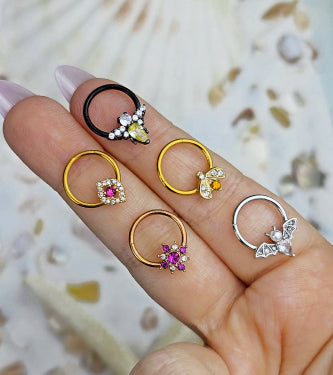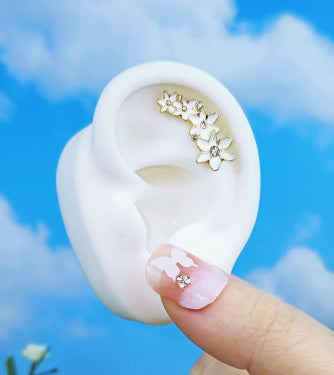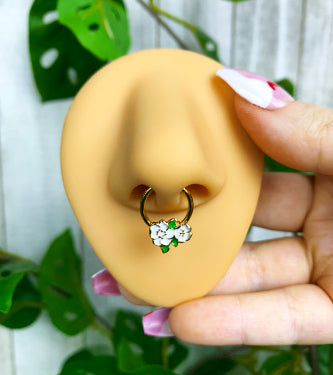Although body piercing was being practiced elsewhere in the world for thousands of years, the evolution of it in Western culture is a relatively newer development. After the invention and patent of piercing guns, many women in the 1960s began getting piercings in their ear lobes, while up until that point, clip on style jewelry had generally been the fashion. It wasn’t until the 1970s however, that the beginnings of modern piercing culture really found a foothold.
In 1970s London, an aggressive anti-establishment movement began on an underground level. Starting with just a few hundred people and slowly growing from there, street fashion began to take a turn as a statement of the message. A rejection of all things proper, conventionally pretty, and mainstream combined with economic crisis to create the unmistakable new look. Clothing from thrift stores was purchased cheap and rigged with needles, ties, and patches. Piercings of the ears, face, and other body parts were performed in kitchens with safety pins. Tattoos became an open branding of difference from society.
Up until that point, piercing and tattooing in the West were primarily a statement of spirituality or alternative lifestyle choice, with a connection to fashion only loosely resonant. But following the anarchist movement and the rise of accompanying punk music, the piercing subculture slowly spread a new message: that different is beautiful.
The connection caught on in the United States a short time after in the late 70s and early 80s, and some of the first piercing parlors in America opened their doors, primarily on the West coast. In the time between then and now, a mixture of all the better parts of punk, retro, and modern style has come together to form the new image of body modification, as a living, breathing work of art.



